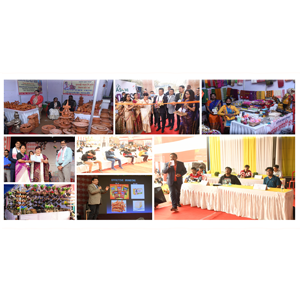SIDBI Initiatives

Dedicated Funds
Swavalamban Resource Facility (SRF)
SRF has been set up as part of the legacy plan on closure of PSIG initiative. As per PSIG Legacy Plan, SRF shall approach towards strengthening of enterprise ecosystem through umbrella Mission Swavalamban and will continue till the legacy funds are fully exhausted. The activities to be undertaken under SRF will comprise of initiatives under mission swavalamban, capacity building initiatives for strengthening the enterprise value chain including institutional development (under Prayaas scheme & Micro Finance sector), setting-up MSME chairs in reputed universities/ institutions, TA support to help impact companies and sectors supported by DFID (FCDO) or SIDBI, targeted programs for extreme poor/livelihood/calamity impacted etc. The initial work plan of SRF is for a period of five years commencing April 2020 with the overall available fund of Rs. 11165 lakh.
IMDF
Inclusive MSME Development Fund (IMDF) – The objective of the fund is to focus on inclusive development of MSME Ecosystem (with thrust on MSEs) by attending to demand and supply challenges and realize ease of doing business. Current allocation is Rs. 69.58 crore to the Bank by RBI.
Swavalamban Challenge Fund
Swavalamban Challenge Fund is a competitive digital mechanism to crowd-source innovative and outcome driven solutions to development challenges. It aims to provide financial support to non-profit organizations/ educational institutions/ social start-ups which have focus on sustainable livelihood, green initiatives, financial inclusion, access to financial services and promoting the culture of entrepreneurship. SCF is also open to projects that innovate, create jobs, leverage investments and markets to promote resilience and sustainable incomes. SIDBI has successfully completed 2nd round of application and supported 18 entities (12 entities in window-I & 6 entities in window-II).
Swavalamban Divyangjan ATMA fund
principally reinvest a proportion of its profit or surplus either back into the business or for a social or environmental cause. SIDBI has brought out a concept paper for setting up a structure where a fund can be established for social impact oriented entrepreneurial ventures with main theme of enterprises which are impacting environment and social space (for green packaging, access to clean water etc.) and need to be supported through equity. Based on the concept paper, a pilot has been launched in the form of Swavalamban Divyangjan ATMA Fund to move from just credit-based lending to invest for impact to reach the un(der)served community in the development sector and invest in social enterprise that instill innovation at grassroot and primarily serve the people at the bottom of pyramid (BoP). The fund enables the Assistive tech startup for market access with a reduced price for the products. This will enable the products accessible for the low-income groups by almost 50% without affecting the quality or standard. The model is expected to touch around 1,000 lives in next 2 years and in long term holds potential to reach several thousand individuals The fund setup along with Social Alpha (a TATA Trust incubator) will select four startups under this project, aims to make a source of capital available to Assistive Technology startups and ultimately envisages sparking a positive change that enables the differently abled people to afford high quality assistive technology solutions thereby also improving their standard of living (through access to better education, livelihood opportunities etc.) Currently under SIDBI-ATMA Fund, we have selected fout startups viz. Rymo, MyUdaan, Phonologix and Signable and one more under process.
Samriddhi and Neev Fund
SIDBI is providing support to Samridhi Fund and Neev Fund to help investee companies scale up, employ sustainable business processes and generate larger social impact. The purpose of such interventions is to improve the business processes; community outreach and impact measurement in young companies and start-ups in impact space especially those working in poorer regions needing support to build sustainable business models, especially focusing on women entrepreneurs. Such support will also help MSMEs in putting together policies and procedures that help them in being ESG complaint and assist in knowledge dissemination across industry platforms.

